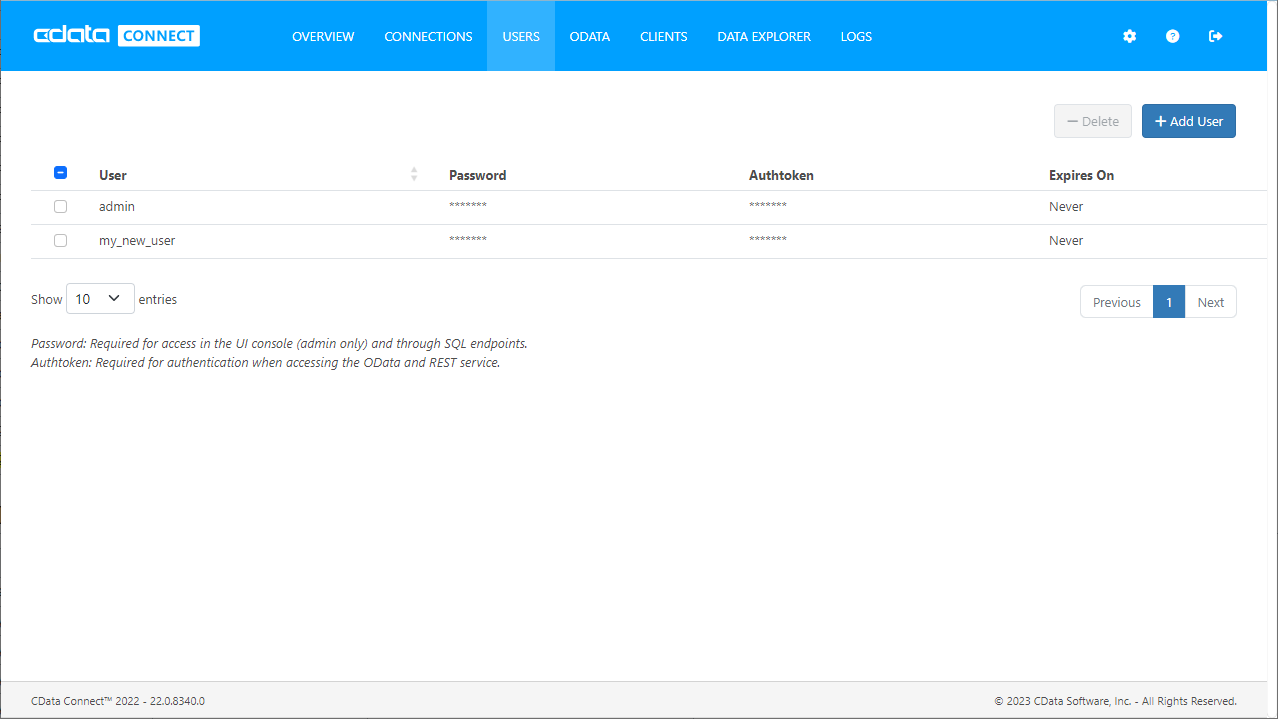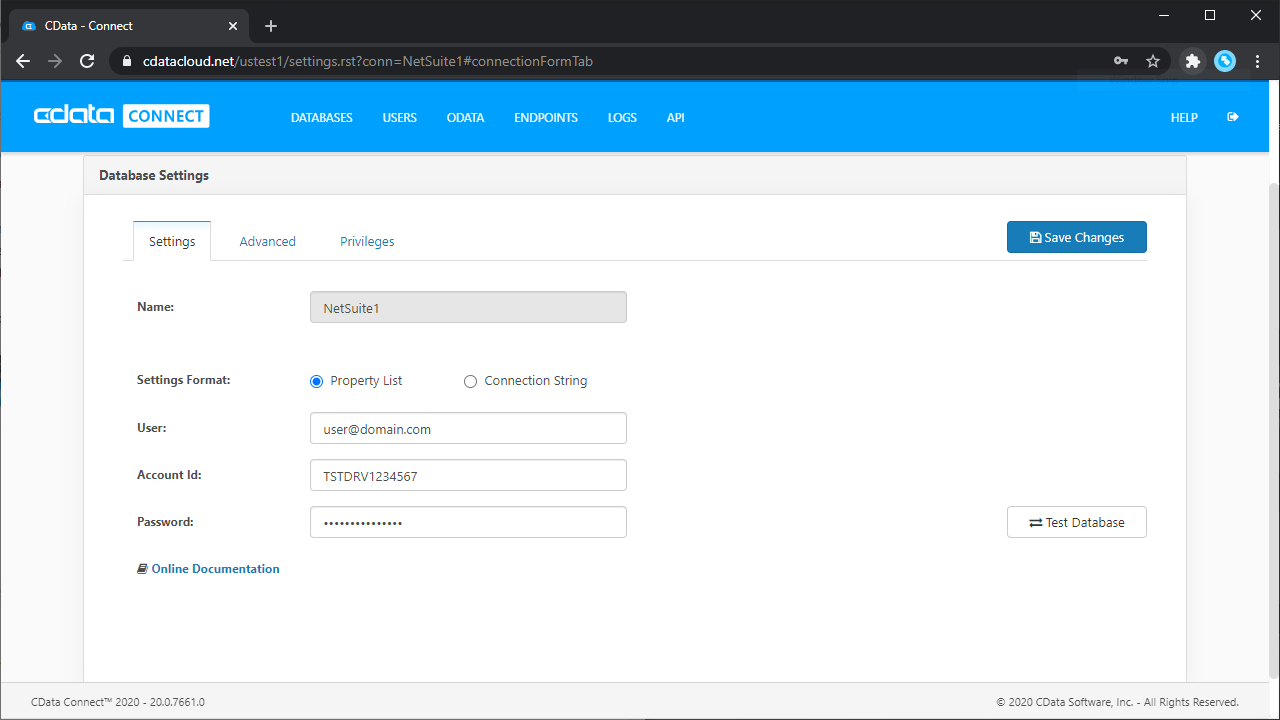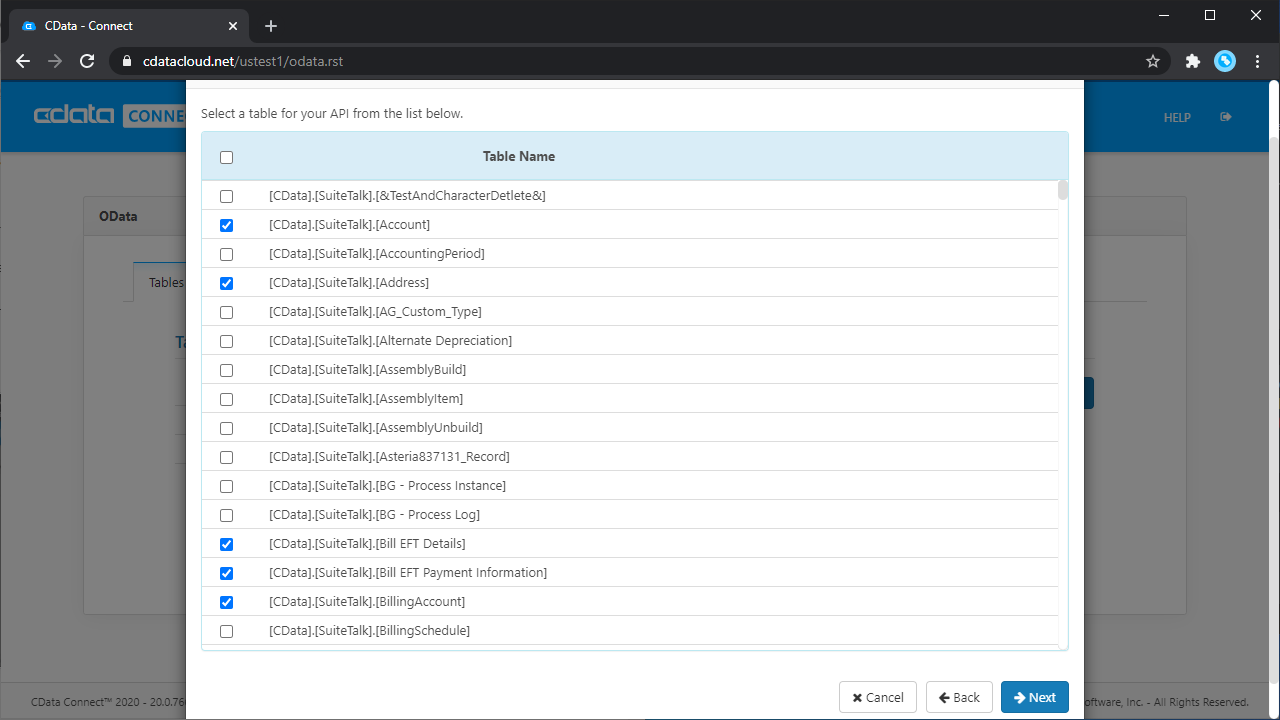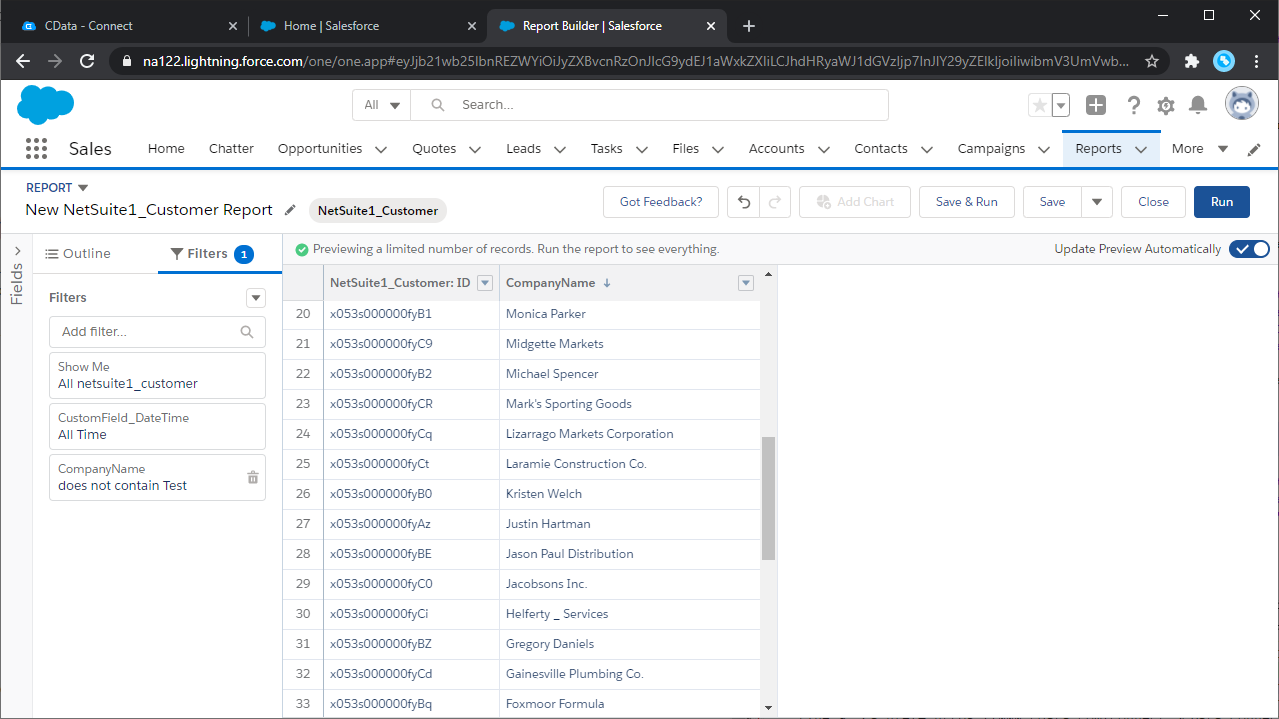Discover how a bimodal integration strategy can address the major data management challenges facing your organization today.
Get the Report →Search External Neo4J Objects in Salesforce Connect
Use CData Connect Server to securely provide OData feeds of Neo4J data to smart devices and cloud-based applications. Use the CData Connect and Salesforce Connect to create Neo4J objects that you can access from apps and the dashboard.
CData Connect Server, enables you to access Neo4J data from cloud-based applications like the Salesforce console and mobile applications like the Salesforce1 Mobile App. In this article, you will use CData Connect Server and Salesforce Connect to access external Neo4J objects alongside standard Salesforce objects.
Configuring Connect Server
To work with live Neo4J data in Salesforce Connect, we need to connect to Neo4J from Connect Server, provide user access to the new virtual database, and create OData endpoints for the Neo4J data.
Add a Connect Server User
Create a User to connect to Neo4J from Reveal through Connect Server.
- Click Users -> Add
- Configure a User
![Creating a new user]()
- Click Save Changes and make note of the Authtoken for the new user
![Connect Server users]()
Connect to Neo4J from Connect Server
CData Connect Server uses a straightforward, point-and-click interface to connect to data sources and generate APIs.
- Open Connect Server and click Connections
![Adding a connection]()
- Select "Neo4J" from Available Data Sources
- Enter the necessary authentication properties to connect to Neo4J.
To connect to Neo4j, set the following connection properties:
- Server: The server hosting the Neo4j instance.
- Port: The port on which the Neo4j service is running. The provider connects to port 7474 by default.
- User: The username of the user using the Neo4j instance.
- Password: The password of the user using the Neo4j instance.
![Configuring a connection (NetSuite is shown).]()
- Click Save Changes
- Click Privileges -> Add and add the new user (or an existing user) with the appropriate permissions (SELECT is all that is required for Reveal).
Add Neo4J OData Endpoints in Connect Server
After connecting to Neo4J, create OData Endpoints for the desired table(s).
- Click OData -> Tables -> Add Tables
- Select the Neo4J database
- Select the table(s) you wish to work with and click Next
![Selecting a Table (NetSuite is shown)]()
- (Optional) Edit the table definition to select specific fields and more
- Save the settings
(Optional) Configure Cross-Origin Resource Sharing (CORS)
When accessing and connecting to multiple different domains, there is a possibility of violating the limitations of cross-site scripting. In that case, configure the CORS settings in OData -> Settings.
- Enable cross-origin resource sharing (CORS): ON
- Allow all domains without '*': ON
- Access-Control-Allow-Methods: GET, PUT, POST, OPTIONS
- Access-Control-Allow-Headers: Authorization
Save the changes to the settings.
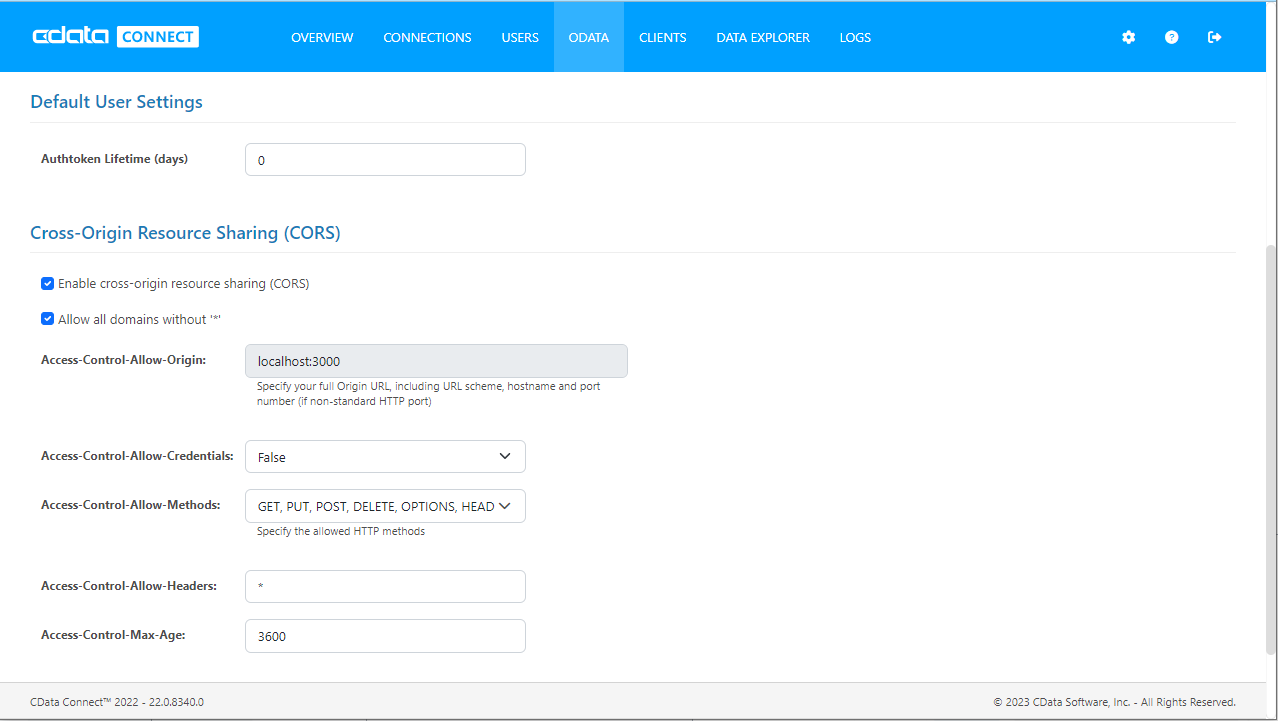
Connect to Neo4J Data as an External Data Source
Follow the steps below to connect to the feed produced by the API Server.
- Log into Salesforce and click Setup -> Integrations -> External Data Sources.
- Click New External Data Source.
- Enter values for the following properties:
- External Data Source: Enter a label to be used in list views and reports.
- Name: Enter a unique identifier.
- Type: Select the option "Salesforce Connect: OData 4.0".
URL: Enter the URL to the OData endpoint of the API Server. The format of the OData URL is CONNECT_SERVER_URL/api.rsc/
Select JSON in the Format menu.
- In the Authentication section, set the following properties:
- Identity Type: If all members of your organization will use the same credentials to access the API Server, select "Named Principal". If the members of your organization will connect with their own credentials, select "Per User".
- Authentication Protocol: Select Password Authentication to use basic authentication.
- Certificate: Enter or browse to the certificate to be used to encrypt and authenticate communications from Salesforce to your server.
- Username: Enter the username for a user known to CData Connect Server.
- Password: Enter the user's authtoken.
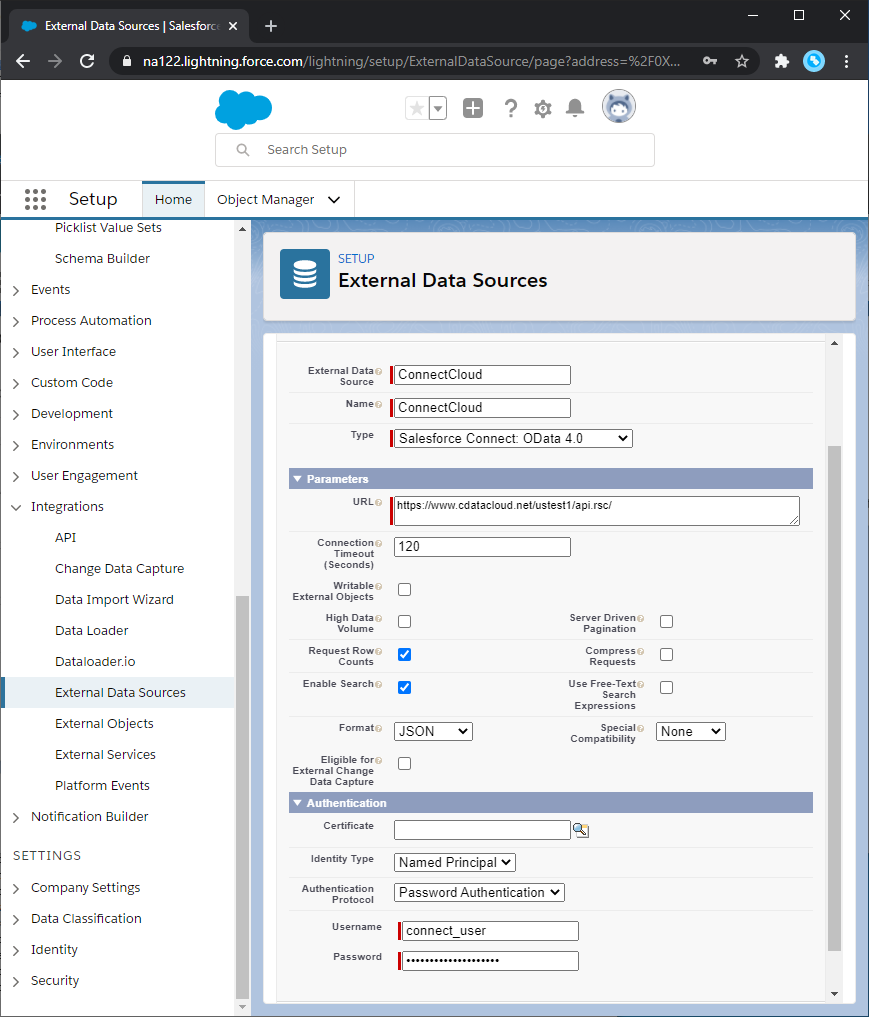
Synchronize Neo4J Objects
After you have created the external data source, follow the steps below to create Neo4J external objects that reflect any changes in the data source. You will synchronize the definitions for the Neo4J external objects with the definitions for Neo4J tables.
- Click the link for the external data source you created.
- Click Validate and Sync.
- Select the Neo4J tables you want to work with as external objects.
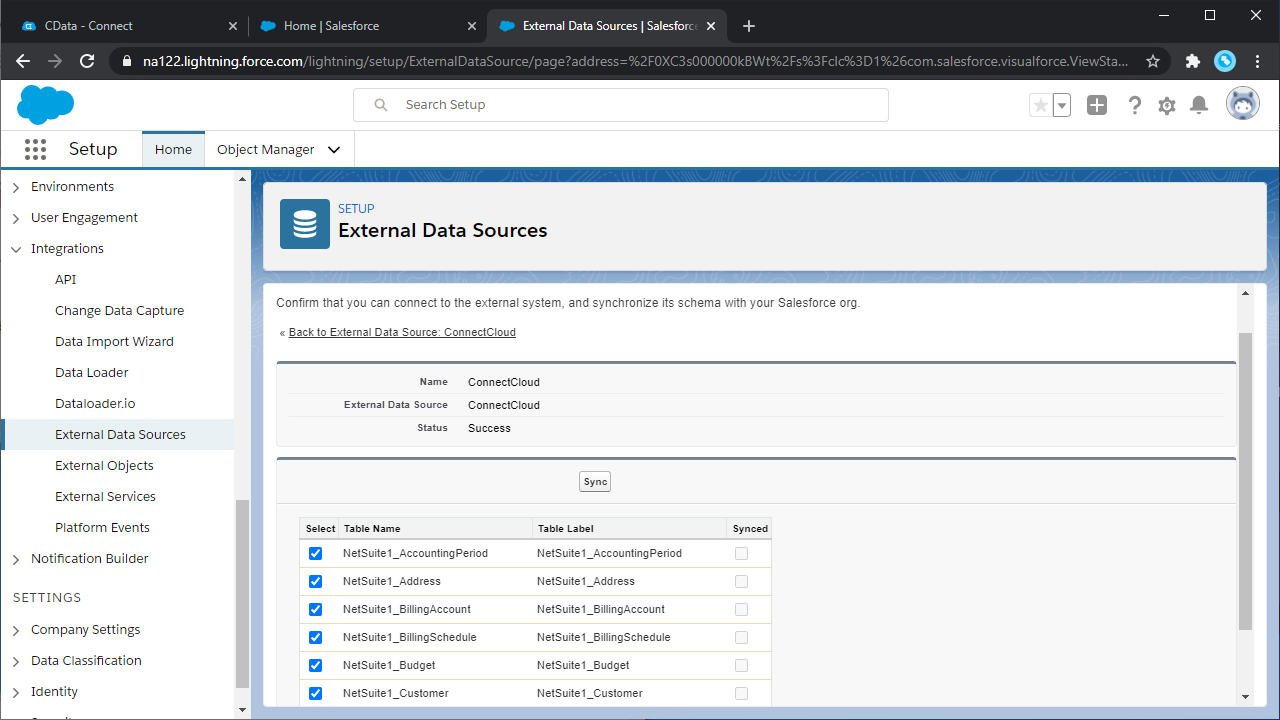
Access Neo4J Data as Salesforce Objects
After adding Neo4J data as an external data source and syncing Neo4J tables as external objects, you can use the external Neo4J objects just as you would standard Salesforce objects.
-
Create a new tab with a filter list view:
![Viewing external objects from Salesforce (NetSuite is shown)]()
-
Create reports of external objects:
![Reporting on external objects from Salesforce (NetSuite is shown)]()
Simplified Access to Neo4J Data from Applications
At this point, you have a direct connection to live Neo4J data from Salesforce. For more information on gaining simplified access to data from more than 100 SaaS, Big Data, and NoSQL sources in applications like Salesforce, refer to our Connect Server page.






